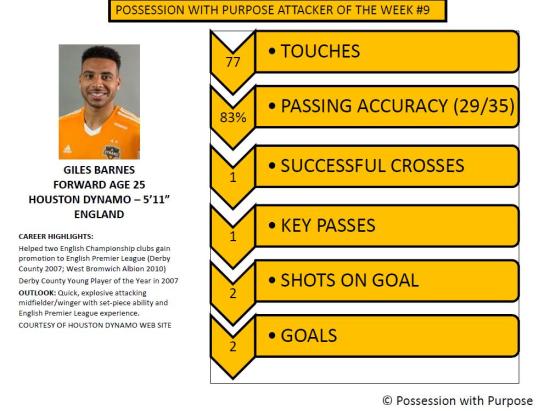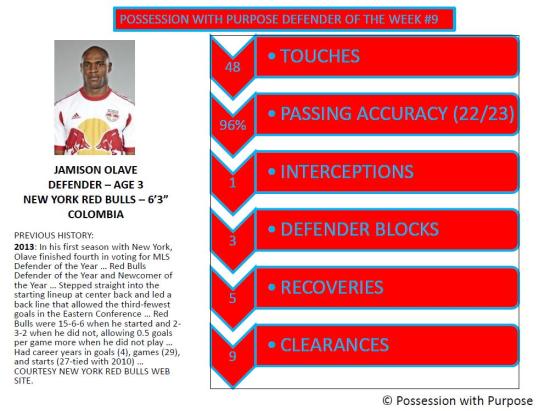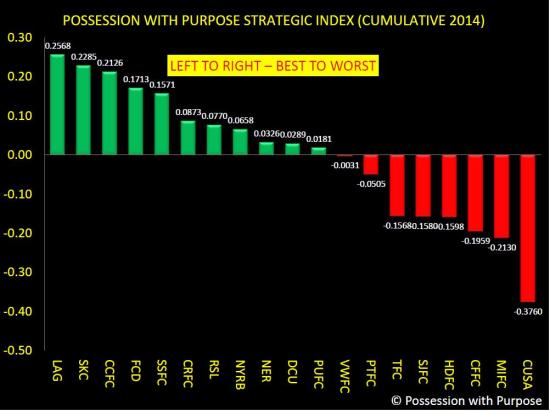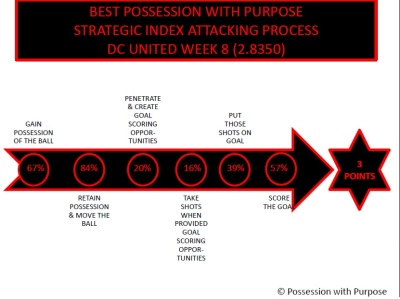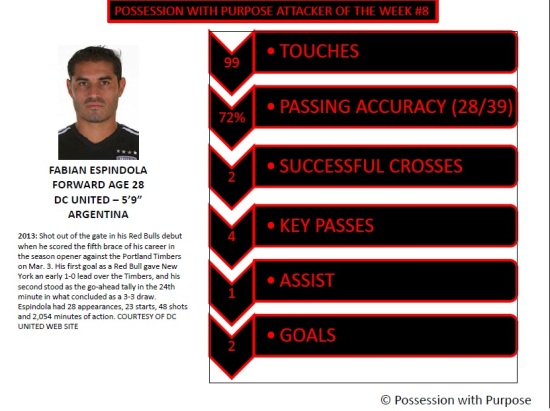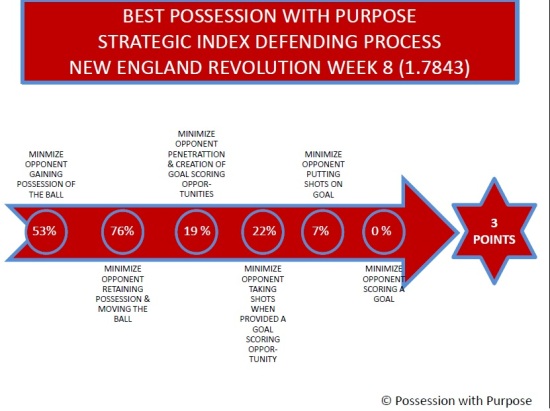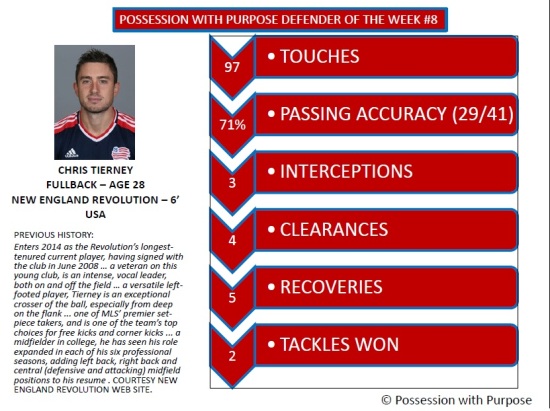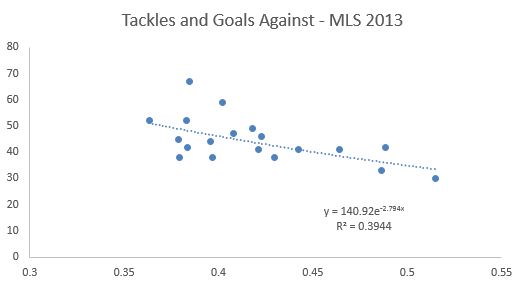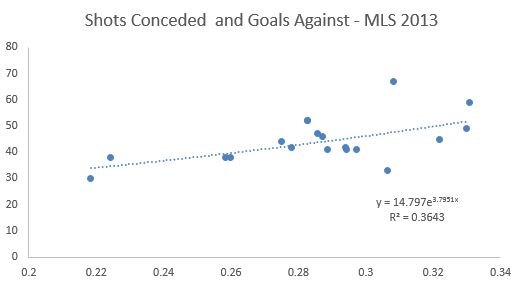How it Happened: Week Nine
/Welcome to my few-days-old review of the weekend in MLS, where I recap three games that I watched in their entirety (well, usually) by picking a stat or Opta image that tells the story of the game for each team. This week I fell short of my usual three games, and I apologize to the legions of Red Bulls and FC Dallas fans who will no doubt be disappointed to read the following paragraph. FC Dallas 0 - 1 New York Red Bulls
Stat that told the story for both teams: 26 minutes for which I was able to watch this game
This game was hideous. Not necessarily soccer wise: Thierry Henry will be fun to watch when he's pushing a walker around on opposing half, and this was a very competitive match, from what I saw. But I couldn't even make it past 26 minutes of this game before I had to give up and turn it off. Between Je-Vaughn Watson's karate kick of Tim Cahill, the referee's less-than-stellar control of the game, and players, fans and coaches alike going insane showing their indignation at every whistle, it was absolutely painful.
Sporting Kansas City 2 - 0 Columbus Crew
Stat that told the story for SKC: the ability to switch the ball in one pass
First, an aside: re-capping the national TV game from NBCSN is next to impossible, but for a good reason. Kyle Martino on the broadcast team does such a fantastic job breaking down the tactics of the match, that it's incredibly difficult for me to pick out anything that hasn't been said yet. So I'm going to just roll with something he mentioned, and that Matthew Doyle also mentioned in his weekly column. One of the major differences between KC and Columbus is Matt Besler's ability to switch the field of play with one ball. It's an ability that led straight to the first goal (buildup pictured above according to Opta), and it's one that USMNT fans have to hope pays off in the World Cup. Columbus, for all their admirable qualities, don't really have a player with the quality to hit that ball. Federico Higuain can do it, and Wil Trapp will from time to time, but with SKC if it isn't Besler switching fields, it's Graham Zusi or Benny Feilhaber or Seth Sinovic. All in all, they're just a more complete team at the moment.
Stat that told the story for Columbus: Jairo Arrieta's actions
There's one other really big difference between the Crew and Sporting KC that spells out why Columbus doesn't measure up, at least not yet. Jairo Arrieta plays as a lone striker for Columbus. This probably isn't the greatest role for him, because he's at his best when combining with others. Sometimes this works well with him and Higuain, but sometimes (like Sunday), he ends up isolated and completely ineffective. Seriously, his action that was closest to the goal against SKC was still about 30 yards away from the endline. The Crew did have some solid moves, generally involving Josh Williams overlapping and sending in a dangerous cross, but the lack of a quality striker really did Columbus in.
Chivas USA 1 - 4 Houston Dynamo
Stat that told the story for Houston: interchanging midfield in the new formation
I'm gonna play a little trivia game here and see if you can guess which heat map belongs to which midfielder from Sunday's game for Houston. The telecast called Dom Kinnear's formation a 4-3-3, but it looked a whole lot like a 4-1-4-1 to me, taken straight out of Jay Heaps' playbook from last season. I really liked the move: the Dynamo have multiple midfielders who can tuck in or pose a threat out wide, and Giles Barnes and Will Bruin just haven't worked well together up top. So, might as well drop Barnes into the midfield. It was only Chivas, but the early returns were pretty tough to argue with: the midfield dominated every facet of the game from winning balls to creating chances. We'll see if the Dynamo stick to the formation, but I liked the innovation from Kinnear. By the way, the answer from top left to bottom right: Davis, Garcia, Driver, Barnes, Carrasco.
Stat that told the story for Chivas: first half midfield struggles: 16/19 recoveries/interceptions in their own half
I've written about Chivas a few times in recent weeks, focusing mostly on the midfield. Against the LA Galaxy, they got run over and never stood a chance. Against San Jose, they held their own and really made it a game (seeing the Quakes' struggles against Vancouver this weekend makes that seem like less of an accomplishment). Against the Dynamo on Sunday, it was back to getting run over. The five midfielders put together a total of 19 recoveries + interceptions in the first half, but 16 of them were in their own half and the other three were miles from the attacking goal. Basically, the Goats couldn't make up any ground and just got pushed around by the more talented Houston midfield. On the bright side: the second half started better, until another goalkeeper red card finished off any Chivas hopes at a comeback.





